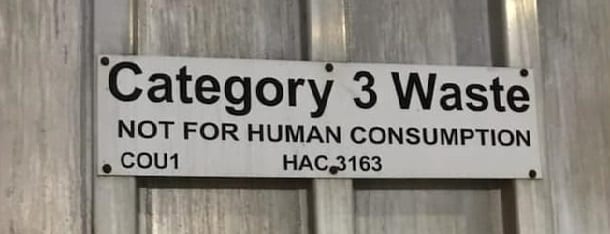Press Release 11 November 2020
McConalogue lodges legal appeal against Court decision to allow large trawlers fish inside Ireland’s six mile zone
In December 2018, following a public consultation process in which over 900 submissions were received, the then Minister for Agriculture, Food and Marine announced that vessels over 18 metres will be excluded from trawling in inshore waters inside the six nautical mile zone and the baselines from 1 January 2020. A transition period of three years for vessels over 18 metres targeting sprat was allowed to enable adjustment for these vessels, as the sprat fishery is concentrated inside the six nautical mile zone.
A Policy Directive was issued by the Minister to the independent Licensing Authority for Sea Fishing Boats under Statute and was intended to give effect to the measures announced by the then Minister excluding vessels over 18 metres in length from trawling inside six nautical miles
A Judicial Review was taken by two applicant fishermen challenging the validity of the Policy.
The High Court’s ruling of Judicial Review proceedings which relate to the Policy Directive has been appealed by the State to the Court of Appeal and a stay is being sought on the orders granted therein.
Minister McConalogue said that “As this matter is sub judice, I am not in a position to comment on the Policy until the matter can be resolved before the Courts. However, I am committed to the sustainability of fishing in Irish waters and to implementing the commitment made in our Programme for Government that inshore waters continue to be protected for smaller fishing vessels and pair trawling be prohibited inside the six-mile limit.”
ENDS
Press and Information Office
An Roinn Talmhaíochta, Bia agus Mara
Department of Agriculture, Food and the Marine
An Teach Talmhaíochta, Sráid Chill Dara, Baile Átha Cliath 2, D02 WK12
Agriculture House, Kildare Street, Dublin 2, D02 WK12
T +353 (0)1 607 2802
10 November 2020
There has been intense activity behind the scenes trying to find a resolution to this issue. Questions in the Dail have been raised by many TDs after receiving requests from inshore fishers and their representatives and environmental groups. The IWDG signed a joint letter with fellow NGOs requesting an immediate reinstatement of the restrictions (see below) and the IWDG also wrote to the Marine Institute and the Sea Fisheries Protection Authority strongly urging for a science based management system for sprat.

In the meantime, juvenile sprat are still being caught and landed. Some 200 tonnes of sprat, deemed “not fit” for human consumption and category 3 waste, are being landed each night into Rossaveal, Co. Galway. How can juvenile sprat be categorised as WASTE ? This is shocking.
These are forage fish… FORAGE FISH, why would you remove immature juvenile FORAGE FISH to grind into fish meal? Forage fish also known as bait fish, are small pelagic fish which are preyed on by larger predators. These predators include other larger fish, seabirds and marine mammals. Typical ocean forage fish feed near the base of the food chain on zooplankton.
So we are now at the stage of fisheries that we are removing the very base of the food-chain…. the race to the bottom, and for what ? Fish meal, to turn into salmon. How can fish such as cod, haddock, hake, tuna survive, let alone thrive, if you remove their food?
This is classic case of fishing down the food web, whereby fisheries in a given ecosystem,
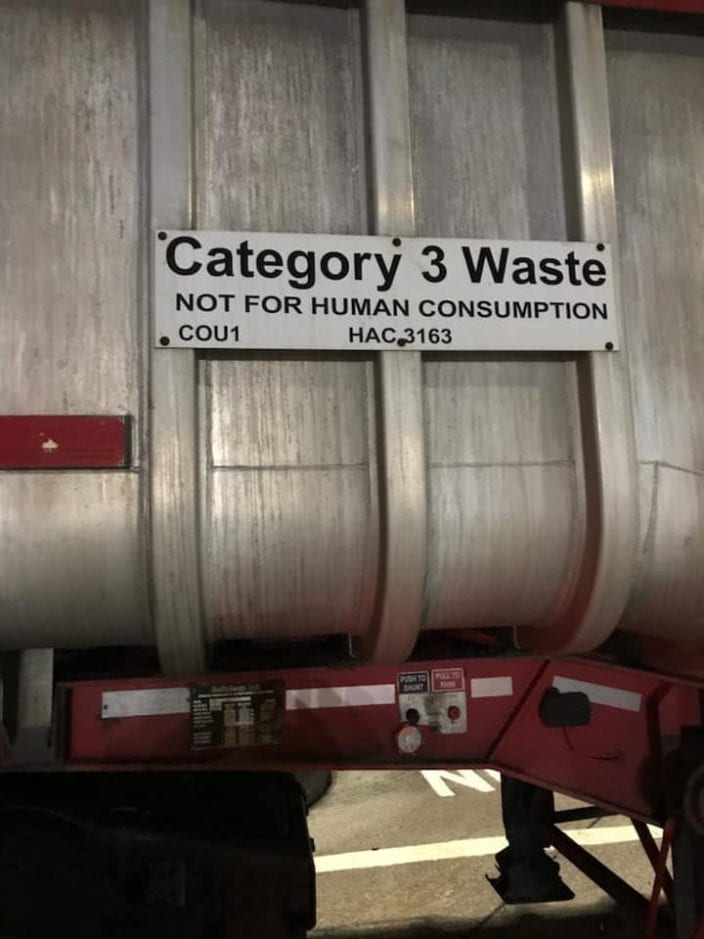 “having depleted the large predatory fish on top of the food web, turn to increasingly smaller species, finally ending up with previously spurned small fish and invertebrates“. This isn’t an academic exercise, its happening now and to what end ??
“having depleted the large predatory fish on top of the food web, turn to increasingly smaller species, finally ending up with previously spurned small fish and invertebrates“. This isn’t an academic exercise, its happening now and to what end ??
Sorry, but really there is no excuse for removing the base of our inshore food chains. Short term benefit for a few vessels, with long term catastrophic impacts on entire ecosystems. And all made possible on a technicality…Over some apparent lack of consultation….Really !!
Sustainable fisheries require knowledge and support from all stakeholders. Fishers are NOT the only stakeholders. If the Dept. with responsibility cannot immediately reinstate the reasonable restriction within 6nmls, then in order to buy time and protect the base of our food chain, we should bring in a ban for all vessels. Let everybody take the hit. It’s really not ideal for a modern, highly developed state with advanced fisheries research resources and a well-educated fleet, but drastic times might require drastic measures, before these stocks also collapse, then what…..Fish the zooplankton !!
QUESTION
To ask the Minister for Agriculture; Food and the Marine the steps he is taking to ensure the reintroduction and implementation of the six-mile ban on large trawlers in Irish waters; and if he will make a statement on the matter.
REPLY
In December 2018, following a public consultation process in which over 900 submissions were received, the then Minister for Agriculture, Food and Marine announced that vessels over 18m will be excluded from trawling in inshore waters inside the six nautical mile zone and the baselines from 1 January 2020. A transition period of three years for vessels over 18m targeting sprat was allowed to enable adjustment for these vessels, as the sprat fishery is concentrated inside the six nautical mile zone.
A Policy Directive was issued by the Minister to the independent Licensing Authority for Sea Fishing Boats under Statute and was intended to give effect to the measures announced by the then Minister. As stated above, this Policy Directive provided that vessels over 18m LOA (Length Overall) will be excluded from trawling activity inside six nautical miles, including inside the baselines, from 1 January 2020. The Policy Directive directed the Licensing Authority to insert a condition to this effect into the licences of affected vessels.
A Judicial Review was taken by two applicant fishermen challenging the validity of the Policy. An unapproved judgement was issued on 31 July 2020 and the key points to come out of that Judgement is that while the applicants did not succeed on four of the five grounds of challenge, the challenge was made against the entire Policy Directive 1 of 2019 and was successful.
The findings on the grounds of challenge were:
- The Policy Directive 1 of 2019 was not ultra vires,
- The Directive did not impinge the applicants constitutional rights.
- Given the impact on the applicants there was a particular duty on the Minister to provide a fuller explanation and engage in further talks with the applicants. On this ground the applicants succeeded.
- The policy directive was not disproportionate to what was to be achieved.
- The Policy directive did not breach EU law.
On 6th October 2020, the Judge held in summary that the Court’s final order should be, among other matters, a declaration that Policy Directive 1 of 2019 was made in breach of fair procedures and is void and/or of no legal effect.
The breach of fair procedures as referenced above related to a failure with obligations to consult with the applicants in accordance with, and to the extent required by, the consultation process and in particular by failing to consult with them once a preferred option had been identified.
I am currently considering, on an urgent basis, the implications of the judgment in consultation with my legal advisors.
I should advise the Deputy that I am committed to the sustainability of fishing in Irish waters and the commitment made in our Programme for Government that inshore waters continue to be protected for smaller fishing vessels and pair trawling be prohibited inside the six-mile limit.
30 October 2020; IWDG regret high court judgement on sprat fishing
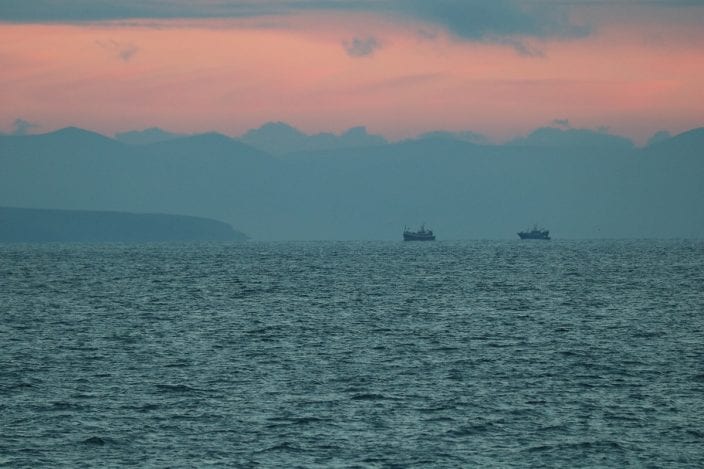
The IWDG have joined forces with a range of groups and organisations to request the Minister of Marine, Charlie McConalogue to immediately reinstate the ban on vessels >18m fishing with the 6nml limit and baseline. The IWDG has listened to fishers and their representative organisations but feel this measure was an important step towards more sustainable and equitable use of some of our marine resources and are happy to join like-minded groups in a joint statement.
The full letter is presented below.
To: Charlie McConalogue, Minister for Agriculture, Food and the Marine
Re: Joint statement in relation to the High Court Judicial Review on restrictions on
trawling activity inside the 6nm limit
29 October 2020
Dear Minister McConalogue,
Responding to news that Ireland’s High Court has found that the ban on vessels larger than 18m
from operating within the country’s six nautical mile inshore waters was void and of no legal effect,
our organisations representing the interests of a healthy marine environment and a sustainable
inshore fishing sector call on you to take the necessary steps to reinstate the ban.
The policy directive introduced in 2018 was one of the most important fisheries policy shifts in the
history of the state and was broadly welcomed as being the right decision from a social, economic,
environmental and social justice perspective. According to the Department of Agriculture, Food and
the Marine, the majority of the over 900 stakeholder submissions made in response to the Minister’s
review of fishing access inside the 6 nautical mile zone (6nm zone) supported restrictions on large
trawlers based on environmental, economic and gear conflict issues.
The rationale behind the ban was supported by expert analysis by the Marine Institute and the Bord
Iascaigh Mhara. These reports highlighted that restricting the access of larger vessels inside the 6nm
zone would lead to improved protection of coastal environments and essential fish habitat,
benefitting marine biodiversity and commercially exploited fish stocks.
They highlighted the socioeconomic benefits for the smaller inshore vessels, that constitute the vast majority of Ireland’s registered fishing vessels. The potential benefits included diversification opportunities, more jobs,
and added value of landings. Improved management of inshore waters could be achieved by aligning
fishing more closely with local ecological and environmental objectives and by reducing conflict
between mobile and static gears. For coastal communities and consumers benefits could include a
strengthening of the link between local fish resources and local economies with spin-off benefits for
the sustainability of supply chains and local businesses.
All these potential benefits remain within reach. It is deeply disappointing and extremely worrying to
us that the new dawn in the management of our inshore environment is under threat from what
appears to be a technicality. The Policy Directive created a huge opportunity for the inshore sector
and if that opportunity is to be denied, then the sector in its current form faces a very uncertain
future and possibly a complete collapse.
We call on you to take decisive action to prioritise sustainable fisheries management in Ireland’s
inshore waters in the interest of the vast majority of Irish fishers, coastal communities and marine
wildlife, instead of the demands of a privileged minority.
Letter to Min McConalogue Re High Court JR on restrictions on trawling activity inside the 6nm limit
16 October 2020
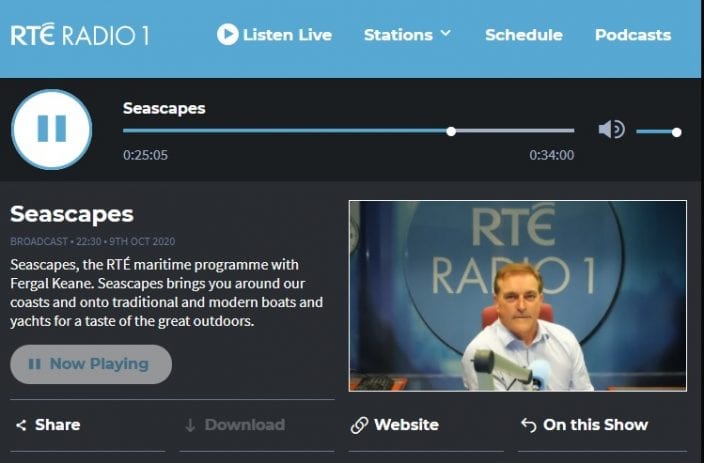 by the IWDG on RTE Seascapes and why we need to learn more about the ecology and behaviour of sprat before we can develop a sensible Management Plan (from 17:15 minutes) https://www.rte.ie/radio/radioplayer/html5/#/radio1/11241174. Holly Cairns also talks on RTE Seascapes on the controversial decision to overturn a ban on large trawlers operating in inshore waters (19 minutes in)
by the IWDG on RTE Seascapes and why we need to learn more about the ecology and behaviour of sprat before we can develop a sensible Management Plan (from 17:15 minutes) https://www.rte.ie/radio/radioplayer/html5/#/radio1/11241174. Holly Cairns also talks on RTE Seascapes on the controversial decision to overturn a ban on large trawlers operating in inshore waters (19 minutes in)
8 October 2020
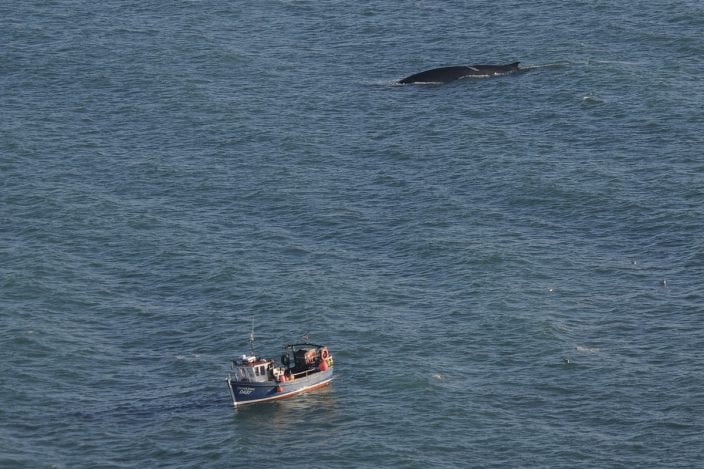
An adult fin whale feeding astern of a small sentinel fishing vessel off Co Waterford. Image Andrew Malcolm/IWDG
This was to protect inshore fish stocks, including sprat which are a keystone species providing important food for a range of predators from whales, dolphins, seabirds and sharks and also a range of commercial fish species, as well as humans. If this ban is to be overturned the IWDG calls on a complete moratorium on sprat fishing by ALL vessels until proper stock assessments can be made to set robust, scientifically based quotas. Sprat are too important a species ecologically to neglect and merely grind into fish meal.
If this attempt at protecting inshore stocks is now void, the IWDG suggests a complete cessation of fishing on sprat, before sprat stocks crash like Celtic Sea herring stocks have in recent years, is the only way to make time for the science to be done to inform a robust Management Plan.
21 December 2018
The IWDG welcome the announcement from Minister Creed that vessels > 18m in length will be restricted from fishing within 6nmls from the coast and baseline. This followed a consultation by the Minister with stakeholders in June 2018. The IWDG made a submission to the consultation supporting the proposed restrictions and also calling for a moratorium on sprat fishing until quotas informed by robust science were put in place. IWDG also called for a restriction on all trawling in SACs with dolphins and porpoise as qualifying interests until proper studies on the ecological effect of the removal of large amounts of prey species was carried out.
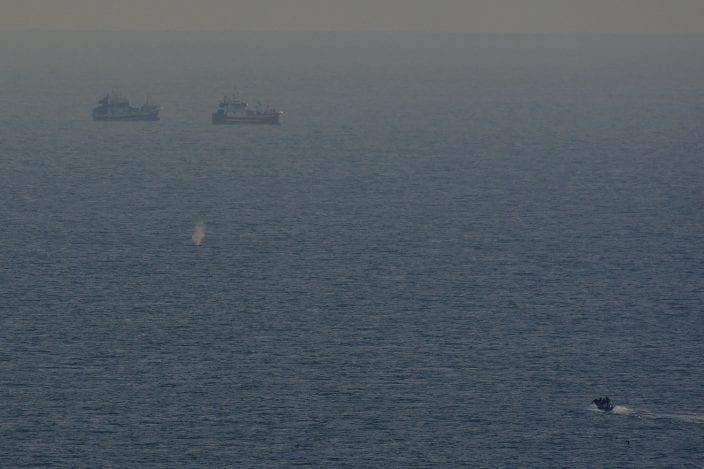
Fin whales feeding near pelagic fleet off Co Waterford. Image Andrew Malcolm/IWDG
The IWDG welcome the Ministers announcement, and consider this decision not only good for marine ecosystems, including whales and dolphins, but also for coastal communities. With proper management, these fish resources can support both fishing communities and marine ecology, and this decision will contribute to building inshore stocks to healthy levels and provide some ownership back to local coastal communities.

The IWDG in their submission proposed a moratorium on all sprat fishing both inside and outside the 6nml limit and baseline, until a management plan for this species was put in place. This has not been implemented, and IWDG are concerned that sprat could be targetted more in 2019 and with no quota restrictions, resulting in a huge impact on this very valuable prey species. What is the allowed catch of sprat in 2019? if 2,000 tonnes are allowed in 2020 and 1,000 tonnes in 2021. There is no good scientific reason to allow the continuation of sprat fishing for a further three years and IWDG are very concerned about the impact on this on sprat.
However, this is a good day for inshore fishing and we hope that the Minister continues to be strong in supporting coastal communities and our coastal ecosystem so we can look forward to small-scale sustainable fisheries supplying local markets and empowered stakeholders.

